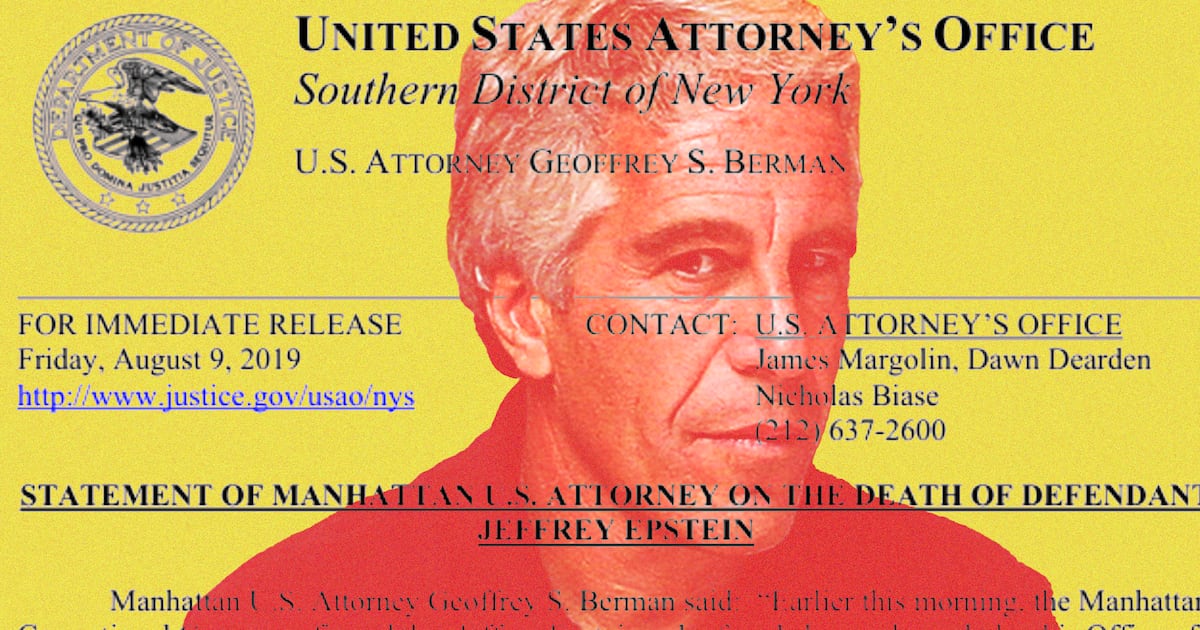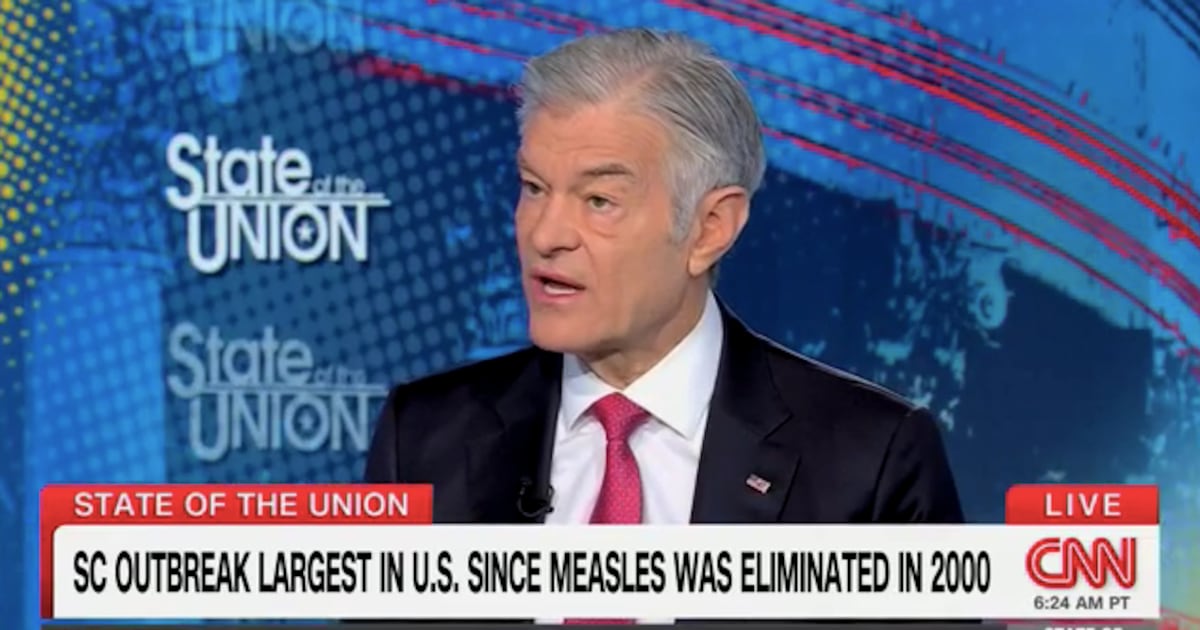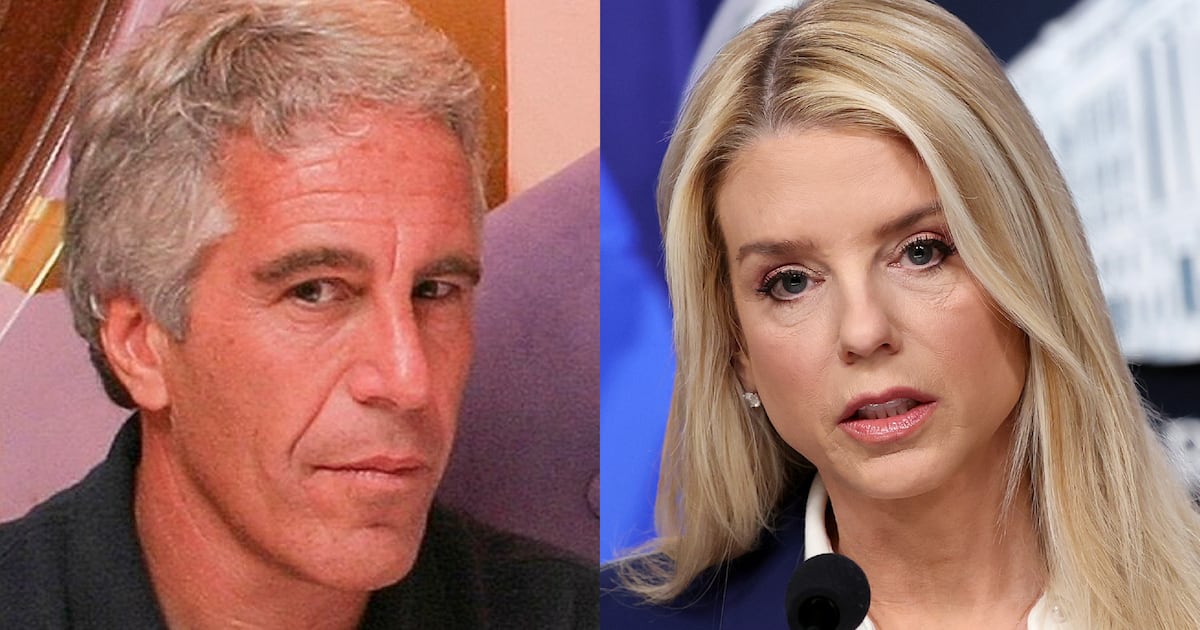Amid seemingly endless revelations of classified government files turning up at the homes of certain sitting and former U.S. presidents (as well as veeps), a high-ranking Air Force officer has quietly admitted to retaining hundreds of highly sensitive documents at his Florida home.
Some of the information was classified at the Top Secret/SCI level, and laid out, among other things, capabilities and collection methods used by the National Security Agency (NSA), according to investigators. If ever exposed, the files “could be expected to cause exceptionally grave damage to the national security of the United States,” prosecutors said in a plea agreement unsealed over the weekend and obtained by The Daily Beast.
Robert Birchum, 54, spent 32 years in the Air Force and retired as a lieutenant colonel in June 2018. During his career, Birchum served as the chief of combat intelligence for an unidentified Air Force group, and later worked with “classified intelligence information” at the Joint Special Operations Command (JSOC), Special Operations Command (SOCOM), and the Office of the Director of National Intelligence (ODNI), according to the plea deal, which was signed Aug. 26, 2022, but kept under wraps until now.
Some of the classified material Birchum accessed “concerned Department of Defense locations throughout the world, detailed explanations of the Air Force's capabilities and vulnerabilities, and, among other things, the methods by which the Air Force gathers, transmits, and uses information observed by various Intelligence, Surveillance, and Reconnaissance (ISR) platforms,” the plea documents state. The Air Force has a long history with the NSA, and the service branch works closely with the agency on gathering signals intelligence worldwide.
Prosecutors said in a filing that Birchum “abused a position of public trust and used a special skill in a manner that significantly facilitated the commission and concealment of the offense.”
President Joe Biden, ex-President Donald Trump, and Trump’s vice president, Mike Pence are all currently under investigation for allegedly hanging onto classified documents they were not supposed to have. Classified information must be stored in a so-called Sensitive Compartmented Information Facility, or “SCIF,” which, as the plea deal explains, is “a room, building, or installation accredited by the United States government and designed to prevent as well as detect visual, acoustical, technical, and physical access by unauthorized persons and devices.”
Intent is key when considering a prosecution over mishandled documents. Criminal charges may be brought when someone “willfully retains” a government document they are not supposed to have, and “fails to deliver it on demand” when asked. Last year, NSA employee Mark Robert Unkenholz—who, like Birchum, held a Top Secret/SCI clearance—was charged with willful transmission and retention of national defense information after allegedly sending 13 emails containing government secrets to a woman working in the private sector. The case is ongoing.
Birchum pleaded guilty to one count of willful retention of national defense information, a felony carrying up to 10 years in federal prison. His guilty plea came 18 days after the FBI first searched Mar-a-Lago, Trump’s home and private club in Palm Beach, seizing some 300 classified documents the government says were improperly retained and stored. It is unclear what, if anything, Birchum was planning to do with the documents he had on hand. (The two cases are not known to be related in any way.)
Reached by phone, Birchum’s lawyer suggested there’s a story to tell but declined to provide further details until speaking with his client. Claudia Borovina, an NSA spokeswoman, told The Daily Beast in an email, “Unfortunately, we don’t have anything to offer on ongoing litigation.” Air Force spokeswoman Capt. Rachel Salpietra told The Daily Beast that official policy precluded the service branch from commenting.
Cedric Leighton, a retired Air Force colonel, was attached to the NSA and also spent time assigned to the United States Special Operations Command (USSOCOM), of which JSOC—where Birchum worked toward the end of his career—is a subordinate command. Those assigned to JSOC handle “a great deal of extremely sensitive information,” with much of it at the Top Secret/SCI level, Leighton told The Daily Beast.
“Additionally, much of the intelligence and operational information of these commands is within SAP (Special Access Program) channels, which means the handling requirements for this information are much stricter than they are for TS/SCI,” he said on Monday, noting that these materials are “exceptionally sensitive, from both an operational and an intelligence collection perspective.”
“I noted with concern that he had briefing slides in his possession that detailed NSA’s special collection capabilities,” Leighton said. “I used to work with those. Revealing them could potentially cause grave damage to our capability to execute military operations and collect information vital to our national security.”
The case against Birchum can be traced back to Jan. 24, 2017, when the Air Force Office of Special Investigations (AFOSI) received word that Birchum had a thumb drive containing classified information at his residence in Tampa. The tipster told AFOSI investigators that, in addition to Birchum, “at least one other individual had access to, and actually accessed, classified information stored on the Thumb Drive,” the plea documents state.
That same day, the feds searched Birchum’s residence, seizing the thumb drive, along with a Dell hard drive, as well as “numerous paper documents containing classified national defense information,” according to the plea. A subsequent review of the material found 135 files marked Top Secret, Top Secret/ACCM (Alternative Compensatory Control Measures), Secret, and/or Confidential.
One of the most troubling examples in the plea agreement concerns a pair of documents on the thumb drive. The two, identified in the filing as “Document A” and “Document B,” are NSA presentations “discussing the NSA’s collection of information,” it states.
“Specifically, the presentations summarize the NSA’s capabilities, detail methods of collection, and identify targets’ vulnerabilities,” the plea deal explains. “Document A and Document B are classified at the Top Secret/SCI level, are closely held by the U.S. government, and constitute national defense information. Based on the level and amount of detail contained in Document A and Document B, their unauthorized release could be expected to cause exceptionally grave damage to the national security of the United States.”

Further, investigators say they found 10 files on the hard drive marked Secret, and 48 Secret-level paper documents in the house. On Jan. 30, 2017, AFOSI seized a personal hard drive Birchum had kept in his temporary quarters during an unspecified overseas deployment.
“A review of that hard drive revealed that the defendant had separately used that hard drive to willfully and unlawfully retain 117 additional files containing classified national defense information; 12 of those files contained information marked as Top Secret, some with ACCM, 98 files contained information marked as Secret, some with ACCM information, and 7 contained information marked as Confidential,” the plea deal states.
Less than a week later, the filing says federal agents conducted a search of a “storage pod” in Birchum’s house, seizing 28 paper documents marked Secret.
The information belonged to “various United States Government entities, including military components and intelligence agencies,” of which Birchum was well aware, according to prosecutors.
“Based on his intelligence-related official duties and, among other things, his execution of multiple NDAs throughout his Air Force career, the defendant knew that the information contained in the above-described files was classified national defense information and that he was not authorized to possess or retain those materials in his house,” according to the plea agreement.
Birchum’s house “was not a location authorized to store classified information, and the defendant knew as much,” the document continues. “Having unauthorized possession of the Thumb Drive containing Document A and Document B, both of which related to the national defense, the defendant willfully retained Document A and Document B and failed to deliver them to an officer or employee of the United States entitled to receive them.”
Birchum accepted responsibility for the offense and agreed to let the government destroy the thumb drive and hard drive in question, according to the plea documents. He is due to make his initial appearance in court on Feb. 21; a sentencing date has not yet been set.






